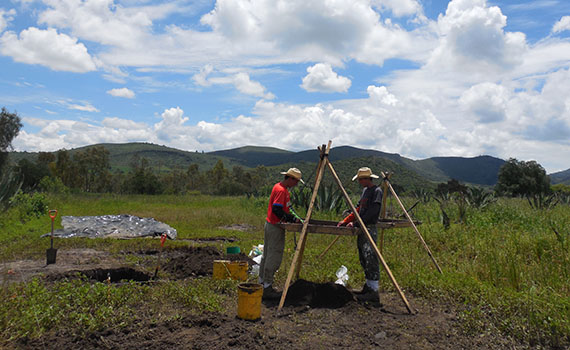A initiative to provide financial support for students on unpaid internships has tripled in size since a 2012 major overhaul to the program.
A total of $472,508 was awarded to 170 students through the Career Services unrestricted internship fund this , with an average grant of $2,779. The number of students funded increased 354 percent over 2012, when 48 were awarded a total of $173,192.
While ˛Řľ«¸ó has a 20-year tradition of providing internship funding, up to 2012, most of the money was earmarked for specific career fields based on donor preference. And while those funds still exist, a new unrestricted fund established and entirely supported by donations has helped hundreds of students take on internship and research opportunities that were previously unfunded.
“What this has allowed us to do is open up far more opportunities for students to take on internships in areas that generally are industry-wide underfunded, such as nonprofits, advocacy, the arts, policy, health care, mental health, research science, environmental, and others,” said Teresa Olsen, director of operations and strategic planning for the Center for Career Services. “It’s designed to be a completely unrestricted fund, in that any student who will be enrolled at ˛Řľ«¸ó can pitch a proposal and request funding.”
Brothers and Erik Jurado ’15, of Vermont, received funding this year to spend their summer working at an archaeological investigation at Altica in the Basin of Mexico.
“We worked five days a week in the field, excavating, sifting soil, bagging artifacts, recording field notes, and producing drawings,” Alex Jurado said.
“Participating on this archaeological excavation was a valuable professional experience for our intended career paths, and it was only possible due to Career Services’ generous support. Their funding has allowed us to pursue our passions . . .,” said Erik Jurado
The program is competitive, and not everyone who applies for funding receives an award, Olsen said.
The application process is designed to teach students how to submit a grant proposal, but also to think realistically about what living and working as a professional might entail.
Students are required to fill out short-answer questions and detailed budget proposals showing how they would use the funding, detailing the costs-of-living expenses not otherwise provided by the employer. These may include transportation, food, housing, professional clothing, or supplies necessary to complete the experience. The grant does not replace wages for the student.
A committee of faculty and staff outside of Career Services evaluates and ranks each proposal against a set of criteria. Ultimately, Olsen said, the goal is to award as many students as possible adequate funding to make these experiences realistic for them to pursue.
For more information about how ˛Řľ«¸ó supports internship opportunities throughout the year, visit .
* Editor’s note: Photo used with permission of the Instituto Nacional de AntropologĂa e Historia, MĂ©xico, Proyecto Altica is supported by grants from the National Geographic Society (Stoner, PI), the National Science Foundation (1424132-D. L .Nichols [Dartmouth], PI, NSF No. 424184-W. Stoner, PI[Arkansas]), the Claire Garber Goodman Fund at Dartmouth and Rockefeller Center for the Social Sciences (Nichols, PI).

